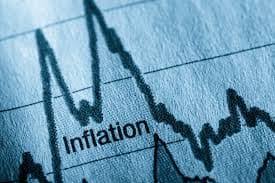
Adnan Adams Mohammed
Ghana’s rate of inflation declined to 21.2 percent in April, 2025, the lowest in eight months.
The improvement from the 22.4% recorded in March reflects the fifth consecutive month of disinflation.
This means consumer prices fell by 0.8% month-on-month during the period under review as analysts attribute the improvement to a stronger local currency which has helped curb import-related price pressures.
Both food and non-food inflation moderated during the period, contributing to the downward trend.
Food inflation slowed to 25.0% in April from 26.5% in March, while non-food inflation decelerated to 17.9% from 18.7%.
“The Consumer Price Index (CPI) for April 2025 was 258.6, up from 213.3 recorded in April 2024. This represents a year-on-year inflation rate of 21.2%, meaning that the general price level in April 2025 was 21.2% higher than in April 2024”, Government Statistician, Alhassan Iddrisu, announced in Accra last week. “This marks a 1.2 percentage point decrease from the previous inflation rate of 22.4%, indicating that inflation slowed by 1.2 percentage points over the period. Encouragingly, this is the fifth consecutive time that inflation has declined.”
Meanwhile, analysts had projected a further slowdown in Ghana’s inflation for April driven by relatively stable petrol pump prices and a steadier cedi.
A report by Databank Research anticipated that the disinflation trend will persist, supported largely by improved food supply dynamics. However, on the broader outlook, the report warned that sustaining this downward momentum will hinge on monetary policy decisions.
It warns that any premature interest rate cut, particularly at the upcoming May 2025 Monetary Policy Committee meeting, could reverse the gains, despite the policy rate having been raised to 28 percent in March.
“These marginal drops indicate a balanced contribution from both sectors of the consumer basket”, the Government Statistician added.
Consequently, global food prices are expected to decline for a second consecutive year in 2025, driven primarily by a significant slump in rice prices, as abundant global supplies and relaxed export restrictions weigh on the market.
The World Bank’s latest Commodity Markets Outlook forecasts a 7% year-on-year decrease in its food price index, with each of its three main sub-categories, grains, oils and meals, and other food items, projected to record declines.
Grain prices are expected to see the steepest fall, dropping by 11%, largely due to a projected 29% plunge in rice prices.
This outlook is attributed to strong global production and the easing of India’s export restrictions.
India, which accounts for about 40% of global rice exports, is projected to increase output by 5% in the 2024-25 season. Globally, rice production is forecast to rise by 2%.
Despite this short-term weakness, rice prices are expected to remain relatively stable in 2026, as both supply and demand are projected to grow in tandem, according to early estimates from the International Grains Council.
Wheat prices are also likely to trend downward through 2026, amid concerns about trade-related demand. However, the decline may be cushioned by tight supply conditions.
While global wheat output is close to record levels, it is anticipated to fall slightly below consumption, resulting in reduced inventory levels.
Maize prices, on the other hand, are expected to ease by 2% in both 2025 and 2026. Weaker crude oil prices, dampening ethanol demand, alongside growing U.S.-China trade tariffs are likely to suppress demand.
Additionally, maize’s price advantage over wheat and soybeans is expected to encourage expanded cultivation, adding further downward pressure.
Even so, the fall in prices could be limited by historically low stock levels, which are set to reach their lowest in over a decade.
The Ghana Statistical Service (GSS) is urging coordinated efforts from households, businesses, and government to maintain the country’s current disinflation path, following a marginal drop in the national inflation rate.
Dr Iddrisu encouraged households to be prudent in their spending. “Continue to manage expenditures cautiously and remain responsive to changes in prices of items such as food and transport, which have shown volatility.”
He called on businesses to leverage the easing cost environment to stabilise operations, particularly in areas reliant on transport and imported inputs such as restaurants and accommodation services. He further urged the government to stay the course on macroeconomic measures and maintain ongoing social intervention programmes to protect lower-income households.
These include initiatives like the Livelihood Empowerment Against Poverty (LEAP), the Capitation Grant, and the School Feeding Programme.
In his remarks, he highlighted the need for closer monitoring of food markets, particularly high-inflation items like ginger, beans, and vegetable oil.
He also emphasized accelerating support for agriculture, saying the government must “fast track the implementation of the Agriculture for Transformation Programme to reduce food inflation, particularly on vegetables, tubers, and plantains which have a high weight in the CPI basket.”
Dr. Iddrisu concluded by stressing the importance of inflation literacy, urging that “public education on inflation dynamics be strengthened to promote informed household decision-making.”